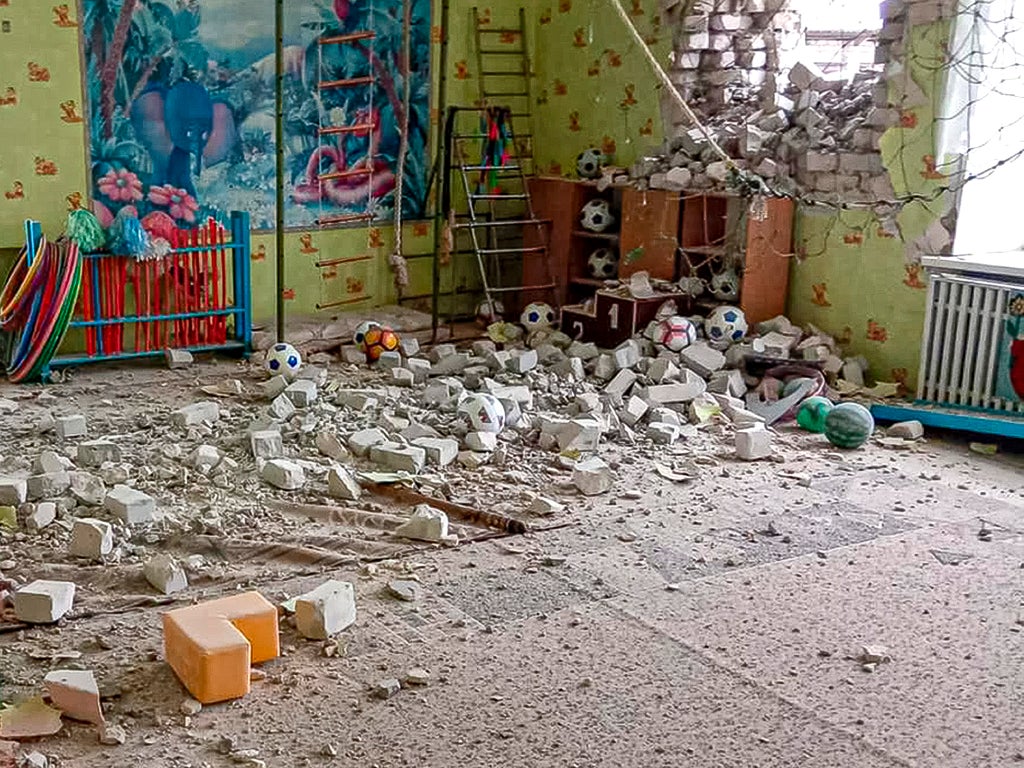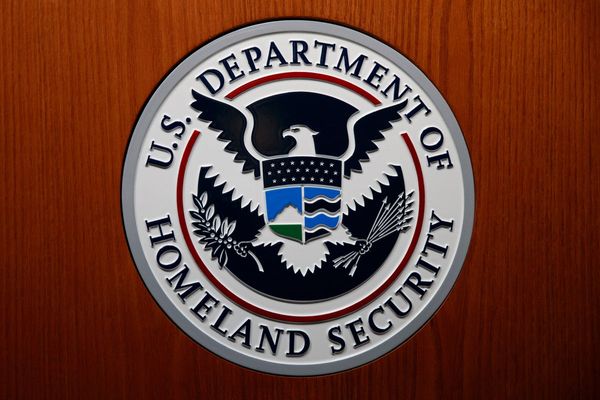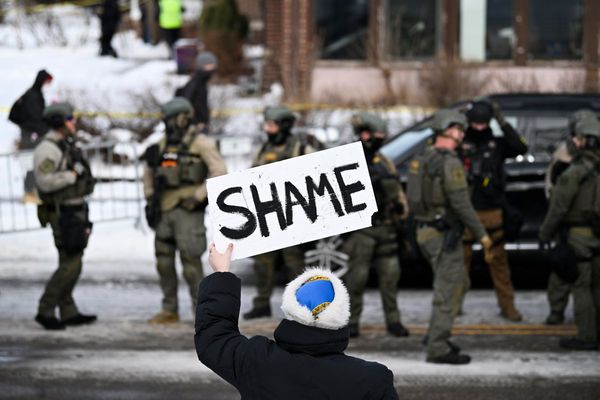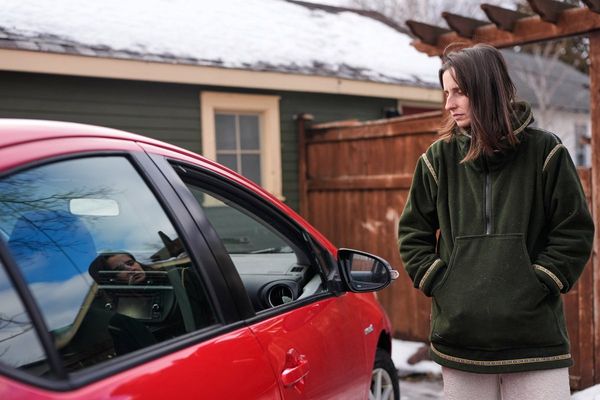
A series of missile and artillery attacks in Ukraine are “false flag operations” carried out by Russia in preparation for an invasion of the country by Vladimir Putin, western leaders have claimed – in a volatile day of bitter accusations and counter recriminations.
Even as what may be the last rounds of diplomatic talks to prevent a conflict were under way, Joe Biden warned that a Russian attack is almost inevitable. “Every indication that we have is that they are prepared to go into Ukraine, attack Ukraine. My sense is it will happen within the next several days,” said the US president.
Signs that the Kremlin may be ready to start military action – after weeks of tension, and building up of its forces around Ukraine’s borders – a number of attacks took place across the Donbas region, in the east of the country, on Thursday.
In one barrage, Russian-backed separatist forces hit a nursery school in the city of Stanytsia Luhanska. The children, who were in another part of the building were unhurt, but three people were injured. In another attack a woman was reportedly injured in the village of Marinka.
In the Stanytsia Luhanska shelling, nursery worker Natalia Slesareva said she was thrown against a door by the shell blast that blew a hole in the wall of a two-storey building being used by more than 20 children and a number of staff.
“The children were eating breakfast when it hit. It hit the gym. After breakfast, the children had gym class… So another 15 minutes, and everything could have been much, much worse,” she told the AFP news agency
Media in Russia and the breakaway republics of Donetsk and Luhansk sought to claim that it was the Ukrainian forces who had started firing first using, in some case, Javelin missiles newly supplied by America. Nato states and the Ukrainian government denied the Russian claims, with President Volodymyr Zelensky calling the nursery school attack a “great provocation”.
But Kremlin spokesman Dmitry Peskov, highlighting the “alarming” exchange of fire, pointed to the “huge strike potential of Ukrainian armed forces at the demarcation line which, along with provocation, may represent a terrible danger.” He accused Mr Biden of “whipping up” tension.
The Russian mission at the United Nations distributed documents alleging Ukrainian forces “have been exterminating the civilian population of the People’s Republics of Donetsk and Luhansk” over a prolonged period. It suggested that attacks by Ukrainian forces had resulted in “thousands of civilians [being] wounded or killed”. Russian investigators were said to have “obtained information about spontaneous unmarked mass graves that were arranged outside specially designated places out of necessity due to the ongoing hostilities”. The extent of civilian casualties, it held, amounted to “genocide of the Russian-speaking population of Donbas”.
Such claims of genocide have repeatedly been condemned by western leaders. Nato’s secretary-general, Jens Stoltenberg, said after the Donbas attacks: “We are concerned Russia is looking for a pretext to invade.” US Defence Secretary Lloyd Austin added: “We’ve been saying for some time that Russia might do something like this to justify a military conflict” and the UK defence secretary Ben Wallace said that Moscow “will peddle more false stories… and you’ll see false stories around, genocide, incursions and breaches of ceasefire”. The UK Ministry of Defence released a graphic which identified seven routes a potential incursion could take – something it called an “axis of invasion”.
Boris Johnson also spoke about pretexts for a Russian attack. “A kindergarten was shelled in what we are taking to be – well, we know – was a false flag operation designed to discredit the Ukrainians, designed to create a pretext, a spurious provocation for Russian action,” said the prime minister.
Speaking after a session of the United Nations Security Council, the US secretary of state, Anthony Blinken, laid out the path he claimed Moscow will follow in triggering a conflict. Possible pretexts, he said, “could include a fabricated terrorist bombing in Russia, the discovery of a mass grave, or a fake, or real, chemical weapons attack”.
In the aftermath of such a move, said Mr Blinken, Moscow will “theatrically convene” an emergency meeting following which Russian missiles and bombs would be launched into Ukraine along with the jamming of communications and cyberattacks. “After that, Russian tanks and soldiers will advance on key targets that have already been identified,” he said.
The signs of escalating confrontation between Russia and the US and its allies continued with the Kremlin announcing that it was expelling the American head of mission, Bartle Gorman, a move Washington said was “unprovoked” and “an escalatory step”.
The expulsion was followed by the Kremlin’s formal answer to the US and Nato’s proposals on security following a series of high-level talks. It accused the west of ignoring Moscow’s security concerns and said: “In the absence of the readiness of the American side to agree on firm, legally-binding guarantees of our security from the United States and its allies, Russia will be forced to react, including by implementing measures of a military-technical character.”
The Russian response, as reported by Russian state news agency RIA Novosti, appeared uncompromising, included demands not made before – as well as ones which the US and Nato would find impossible to agree with.
Russia demanded that the US stopped all arms deliveries to Ukraine, remove defensive weapons already provided to the country, and ensure that Mr Zelensky enforced the Minsk Accord, an agreement Kiev holds it signed under duress and would give the separatist republics a veto over joining Nato or the European Union.
Liz Truss, on a visit to Kiev, said that the west must not cave in to Russian demands but strengthen relations further with Ukraine. “If we hang back, that would only embolden the bullies in their campaign against sovereignty and the right of self-determination,” she said.
The foreign secretary added: “We must stand up to and defuse Russian aggression now, because if we don’t it will embolden not only the Kremlin, but aggressors, authoritarians and autocrats everywhere.”







